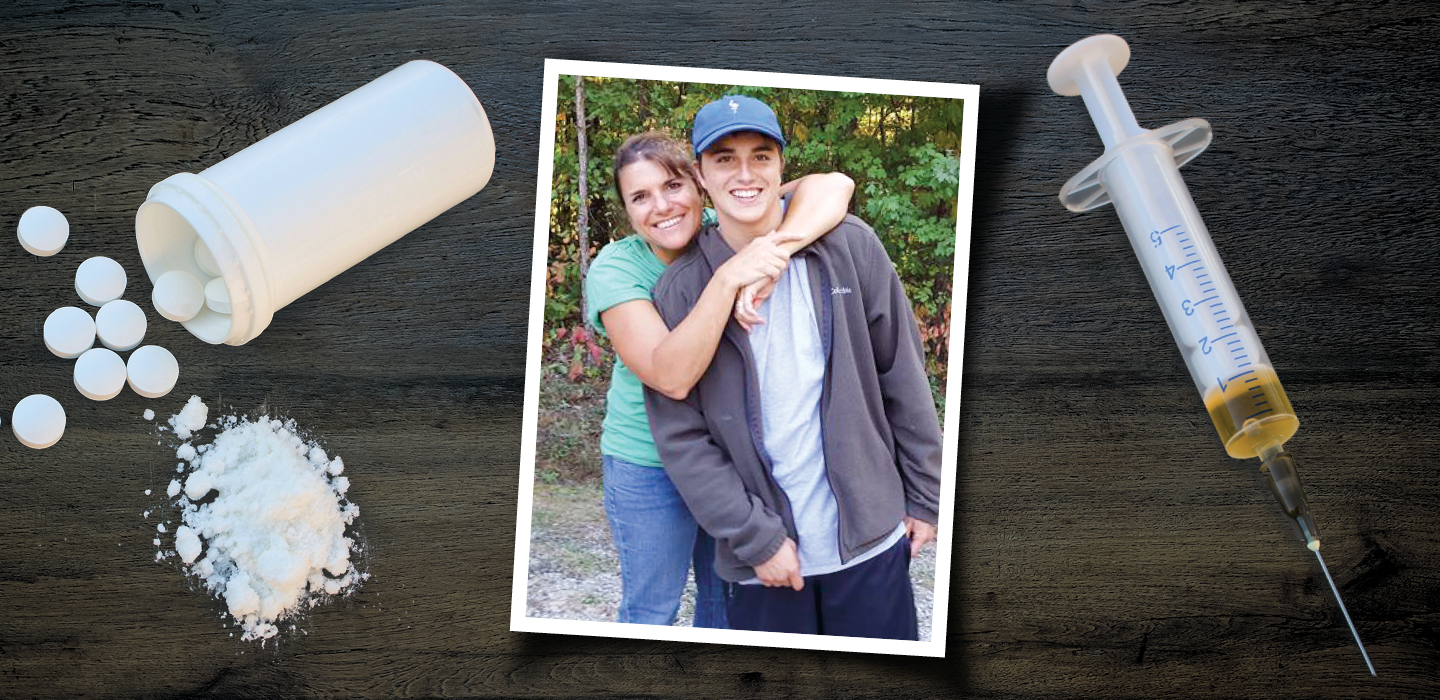Every morning, Lisa Manning walks past the bedroom where her 18-year-old son, Dustin, died of an accidental overdose of the opioid drug fentanyl. Although it’s a constant reminder of the day last year when her husband, Greg, found Dustin slumped over on his bed, the Mannings can’t bear to move out of the house.
“Part of me thinks he’s still here, I guess,” she says. “I’d feel like we were leaving him if we moved so soon.”
Paramedics in Lawrenceville, Georgia, weren’t able to save Dustin on May 26, 2017. Less than an hour later, they received another call from a half mile away. Joe Abraham, 19, a childhood friend of Dustin’s, was unresponsive in his bedroom, dead from an unrelated fentanyl overdose.
Dustin and Joe weren’t close friends anymore, but the two recent high school graduates both became statistics in an opioid crisis that’s gripping the nation and shaking communities like Lawrenceville, a city of 30,000.
Every morning, Lisa Manning walks past the bedroom of her 18-year-old son, Dustin. He died there of an accidental overdose of the opioid drug fentanyl. It’s a constant reminder of the day last year when her husband, Greg, found Dustin slumped over on his bed. But the Mannings can’t bear to move out of the house.
“Part of me thinks he’s still here, I guess,” she says. “I’d feel like we were leaving him if we moved so soon.”
Paramedics in Lawrenceville, Georgia, weren’t able to save Dustin on May 26, 2017. Less than an hour later, they received another call from a half mile away. Joe Abraham, 19, a childhood friend of Dustin’s, was unresponsive in his bedroom. He had died from an unrelated fentanyl overdose.
Dustin and Joe weren’t close friends anymore, but the two recent high school graduates both became statistics in an opioid crisis that’s gripping the nation and shaking communities like Lawrenceville, a city of 30,000.

